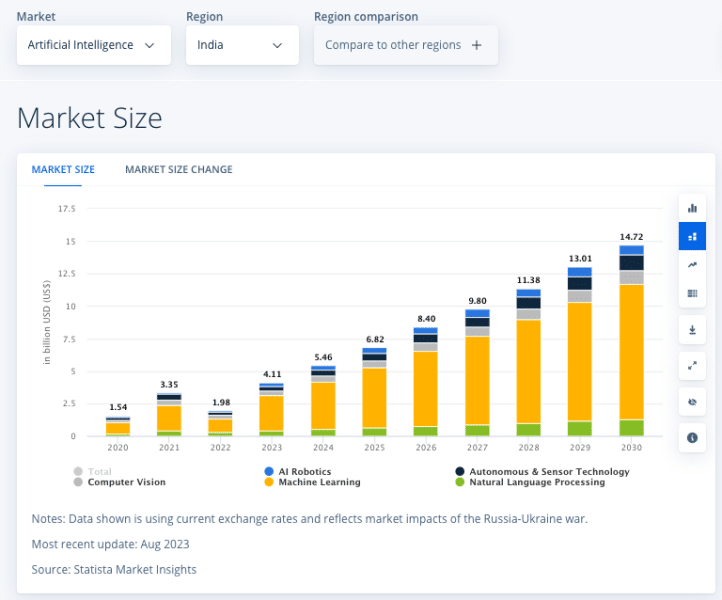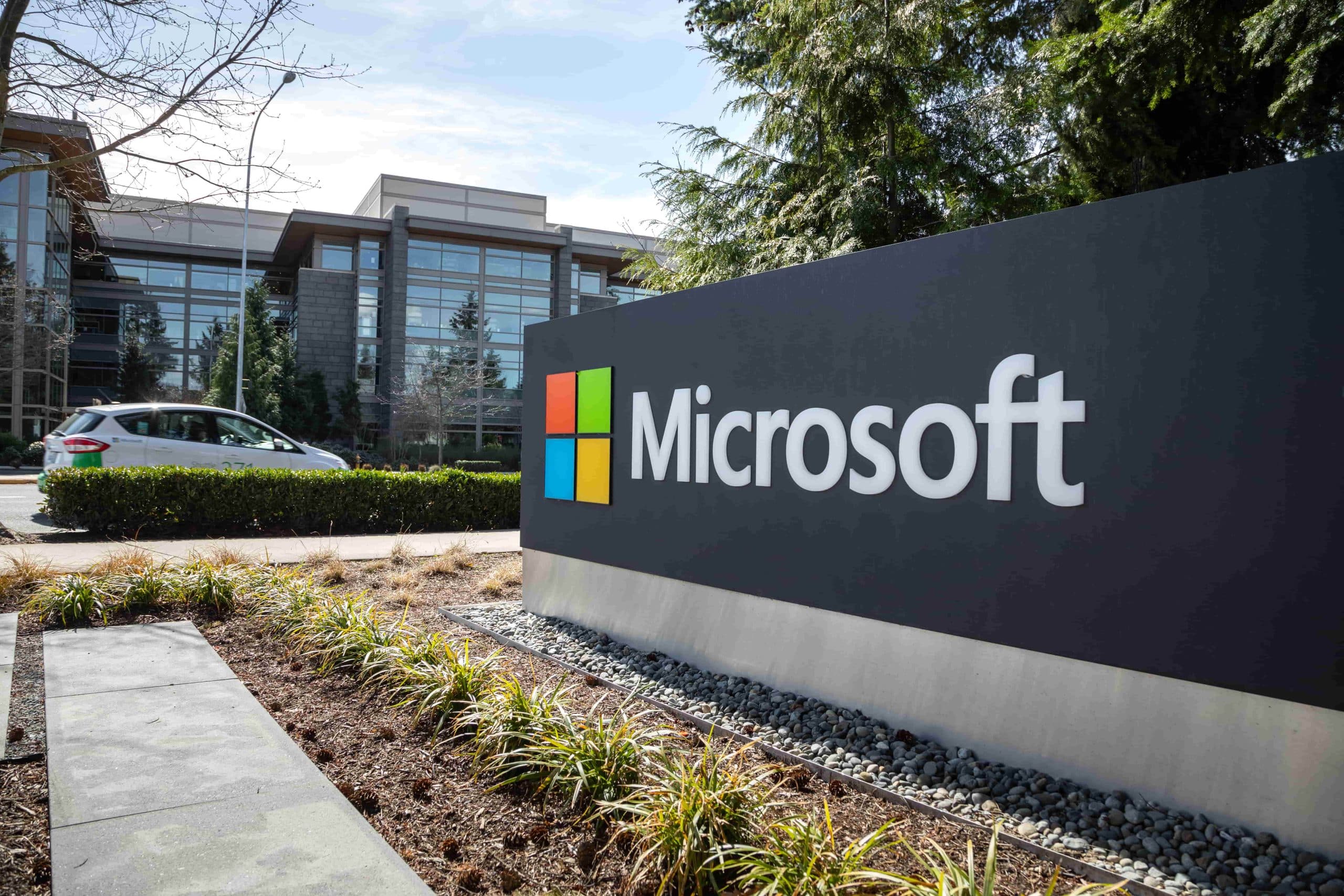Microsoft has unveiled an ambitious initiative to provide training opportunities to 2 million people in India by 2025 in the up-and-coming field of artificial intelligence as part of its broader effort to accelerate the country’s transformation into an AI-powered economy.
The ADVANTA(I)GE INDIA program aims to address India’s significant gap between high demand for AI talent and inadequate supply. It is aligned with Microsoft’s responsible AI principles and will focus primarily on training demographic groups, including women, rural residents, and government workers, to promote inclusive socioeconomic progress.
Massive Shortage of AI Talent Despite Strong Corporate Appetite
The shortage of qualified AI talent in India belies tremendous appetite from both the public and private sectors. According to Microsoft’s recent Work Trend Index, 90% of Indian business leaders say that new hires will require AI skills to keep pace with growth in this area.
However, 78% of current workers admitted that they lack the capabilities to complete AI-related tasks in their existing roles. This signals a dual opportunity and urgency around skilling initiatives targeting different demographics.
To help fill the gap, Microsoft (MSFT) will provide training to 500,000 students and job seekers, mostly in rural vocational centers, through partnerships with 10 state governments. This expands the company’s collaboration with India’s federal Ministry of Skill Development.
Empowering Women Crucial for Inclusive and Ethical AI
Another key focus area is providing in-depth technical AI skills to 100,000 young women by making specialized training resources available to instructors at higher education institutions. Research shows that gender inclusiveness and diversity lead to more ethical and unbiased AI systems.
For broader reach, Microsoft will also promote AI career awareness to 400,000 students in remote tribal areas and schools in the agricultural sector. Ground-level exposure to the benefits and opportunities related to AI innovation aims to develop more homegrown talent across India’s socioeconomic spectrum.
“The ADVANTA(I)GE INDIA initiative is a significant step towards democratizing access to AI skills across the nation and reflects Microsoft’s deep commitment to enabling inclusive growth with technology,” commented Microsoft’s President for the region, Anant Maheshwari.
Government Officers Seen as Catalysts for AI Transformation
Another vital constituency is policymakers and bureaucrats responsible for national digitization initiatives around citizen services, healthcare, education, and more.
To that end, Microsoft is committed to improving AI fluency for 250,000 government officers under its partnership with India’s top civil services training institute. More knowledgeable officials can better evaluate and deploy AI tools to boost public sector productivity and inclusion.
“This commitment involves equipping the youth with skills through training in tools that redefine how people work, connect, address real-world challenges, and live,” noted a senior Indian government official. “Our institutions like ITIs, NSTIs, and our skilling platform are driving the skilling mission,” he further highlighted.
Non-profits Hold Promise for Broadening AI Access
The third priority area for Microsoft is enabling non-profits and non-government organizations (NGOs) to maximize their outreach and social benefits by using this groundbreaking technology.
By participating in the company’s Generative AI Skills Challenge this April, Indian non-profits will gain resources to impart critical tech capabilities to 750,000 young learners and marginalized communities.
This builds on the support already extended to over 20,000 non-profit employees in upskilling through technologies like cloud computing for more effective and data-driven decision-making.
Homegrown AI Innovation Creating Global Ripple Effects
Speaking at a Microsoft AI Tour event in Bengaluru and coinciding with the skilling initiative’s launch, Microsoft’s CEO, Satya Nadella, highlighted India’s expanding developer ecosystem as a catalyst for breakthroughs in generative AI with worldwide implications.
India’s GitHub user base, which is used as a gauge of the number of programmers and software developers within the country, is growing faster than any other country and will overtake the U.S. by 2027. Moreover, India has the second highest number of AI projects on GitHub globally after America.
“This next generation of AI is changing how and what developers build everywhere, including in India,” Nadella commented. “It’s fantastic to see how India’s developer community is applying our technology and tools to build the future for India and the world.”
With the immense growth predicted in the AI market, especially in machine learning, countries will need as many AI experts as they can get their hands on to stay competitive.

The event also showcased inspiring examples of Indian non-profits, health networks, and artificial intelligence startups building inclusive products and platforms enhanced by generative models and other Microsoft offerings. Their pioneering efforts are helping communities access quality education, healthcare, financial services, and more.
Microsoft is Leveraging India as a Launchpad for Global AI Innovation
Microsoft’s incredibly ambitious plan to teach 2 million Indians AI fluency will no doubt be a positive force for the trainees and the Indian economy. But that leaves the question: what does Microsoft get out of this, and how is Nadella justifying it to shareholders?
It’s clear that Microsoft sees India as the next frontier of AI and software development.
The barrage of India-centric investments, partnerships, and developer outreach reflects Microsoft’s view of the country as both a highly promising market and hub for next-generation AI research & development activities.
With strong government backing for AI advancement, availability of engineering talent, and use cases that can scale globally, Microsoft is positioning India as a nucleus for some of its most strategic long-term bets. Trainees who learned their AI skills from Microsoft will be more likely to work for the company down the line.
In late 2022, the company worked with top technical institutions to launch an Azure Society of Excellence to nurture high-potential startups with access to cloud resources and guided AI adoption. It has also run broad skilling initiatives like AI Odyssey, targeting working developers needing to strengthen their skills.
Meanwhile, complementary programs like Code; Without Barriers are working to improve gender representation and inclusivity in India’s tech sector by empowering female developers.
During his visit, a bullish Satya Nadella declared: “This is first time I feel what is happening in India and the rest of the world there is no gap. If anything, the use cases here are so unique and paving their own path”.
With homegrown players like Karya building multi-lingual datasets to responsibly advance generative AI, the tech executive feels that India is well-positioned to lead rather than follow global innovation cycles.
By capacitating millions of learners, workers, and government officials through grassroots training in AI fluency, Microsoft hopes to accelerate a new wave of Indian-led tech transformation touching lives worldwide.
